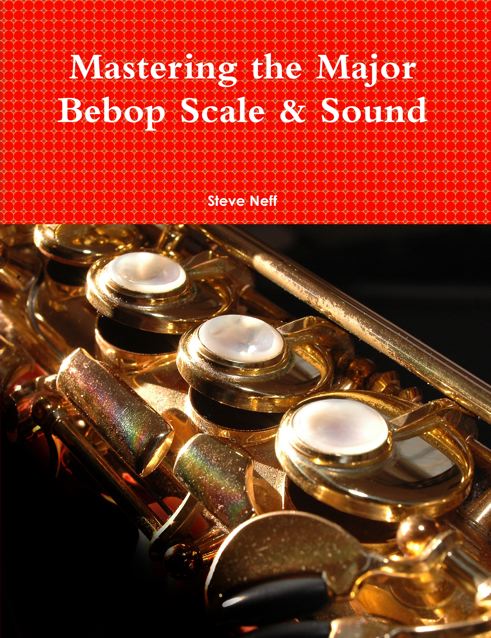About five years ago, I started working on a transcription of an incredible solo by Michael Brecker over “A Night in Tunisia” (Chaka Kahn calls it “The Melody Still Lingers On”). This is from a video on Youtube of Chaka Kahn performing a great version of this tune in 1981. This is classic early eighties Michael Brecker just tearing it up on the tenor saxophone. Here is the original video from Youtube (Brecker’s tenor sax solo starts at 1:58):
Chaka Kahn-A Night in Tunisia Video-(Michael Brecker Tenor Sax Solo Starts at 1:58)
I had only gotten one chorus of the solo done five years ago and up to this date, I have never gone back and finished the rest of the transcription. This week, I discovered that Magnus Bakken (a fellow Berklee alumni and tenor sax player who is now based out of Oslo Norway) had completed the transcription and posted a Youtube video of himself playing along with Michael Brecker with the full transcription scrolling on the bottom of the video. Magnus does an incredible job playing along with Michael Brecker! Check it out in the video below!
Magnus Bakken playing along with Michael Brecker on “The Melody Still Lingers On” (A Night in Tunisia)
I reached out to Magnus Bakken through his website at www.magnusbakken.com and Magnus was kind enough to send me a copy of his transcription to share with everyone. I did add chords to the transcription just because I like to see what harmonies the soloist is playing over as I am looking at the transcription. The chords basically follow the standard chords of “A Night in Tunisia” but there are a few unique deviations at the end. I did my best with trying to hear what was going on but also got some help on the last four chords of the solo from this keyboard video also.
Thanks again to Magnus Bakken for sharing his work with all of us. I’m very excited to dig into the rest of this great Michael Brecker tenor saxophone solo. You can stay connected with Magnus Bakken through his website at magnusbakken.com, on Facebook and also on Instagram. Thanks Magnus!
Thanks again also to Michael Brecker. The anniversary of his death passed a couple of weeks ago on January 13th. It’s hard to believe you have been gone for 14 years already. Your contributions to music and as a person are still having a lasting impact on those you interacted with and influenced as well as all those who have yet to hear your great recordings in the future. We miss you!
Audio of Brecker’s Solo on A Night in Tunisia with Chaka Kahn
A Night in Tunisia Solo-Brecker with Chaka 1981-Bb PDF
*If you would like to support me here at neffmusic.com, you can do so on the support page of my store by debit or credit card. Any support is appreciated and will go towards keeping this site running, saxophone reeds, mouthpiece patches, coffee, and towards justifying the many hours I spend on providing free transcriptions to the saxophone community! Thanks, Steve
If you like these type of outside modern sounding lines like I do, be sure to check out my Devastating Lines for Jazz and Funk Soloing for Minor and Dominant Grooves. These two books are filled with great modern 16th note lines in all 12 keys that you can learn and use while soloing. Check out all the 5 star reviews! Steve





Steve, 14 years, not 13.
Best regards, Louis Gerrits.
Yes, Thank you Louis! Still thinking 2020……
A lot of feeling! What a wonderful solo!
Thanks to share, Steve.
Giuseppe C.
Hi Steve,
I see in the video that Brecker inflate his neck while playing (about 1:57); my teacher Larry did it too, even more evidently: it probably depends on a certain way of playing in case of very hard reed tip opening relationships …
Giuseppe.
This is connected to the amount of resistance in the mouthpiece I believe, which is also connected to how hard the reed is but not necessarily. I know Brecker blew out his Larynx in the 70’s because he was blowing too hard on an Otto Link mouthpiece. I have read that this happened because he had a congenital weakness in that area more than his actions of overblowing an Otto Link but I am not convinced the two aren’t connected. He had to have surgery to close the rip and then wear a band around his neck for awhile.
The reason I think it is connected to resistance in the mouthpiece is that I tried a small chamber soprano mouthpiece once and my neck blew up like twice as much as I played. I have a friend that plays a Claude Lakey on alto sax with an added baffle in it as well and his neck puffs out more than anyones I have seen. I don’t think he has ever had medical issues because of it.
Brecker switched to a high baffled Guardala because it allowed him to use a softer reed and still get the power and brightness he needed without blowing his brains out…….
I also think that it generally depends on a very powerful emission of air compared to how much the mouthpiece can “contain” (either for its size or for its resistance), or for the hardness of the reed; power of air jet which, being superior to the capacity to be “contained”, “chokes” arriving all together instead of gradually dosed, as in a bottle neck; so, perhaps, not being able to drain the air all together in the mouthpiece, it accumulates and makes the neck inflate.
I remember Larry’s neck becoming even more inflated than Brecker’s neck, even though he played with wide mouthpieces so the air, in theory, shouldn’t be choked. If I remember correctly he did it with any mouthpiece he used, as well as with his Berg Larsen 135 and with his Otto Link metal 7*. Obviously over time you get used to blowing in that powerfully concentrated way, even if it would not be necessary in relation to the size of the mouthpiece or the hardness of the reed. Larry also never had any damage from this release, that I know of.
I don’t know if what I write is right, because, when I happened to play with a narrow or, in any case, aphonous mouthpiece, I automatically adjusted myself to playing with the necessary lightness so as not to choke the air and the sound which, of course, it came out with lower volume.
But even with a narrow mouthpiece it can happen to make the neck swell if the player is good enough not to turn off the sound because it chokes and, being used to obtaining a high volume, blows so hard to get it even with the mouthpiece tight, that his neck swells … Maybe, I guess …
Interesting how each of us is different … Same but different … And that’s the beauty; otherwise we would all sound the same; and that would be boring.
Thanks,
Giuseppe.
Thanks for sharing this gem from Magnus Bakken, Steve! Your site looks awesome and I will definitely spread the word about your excellent educational products. Cheers!!!